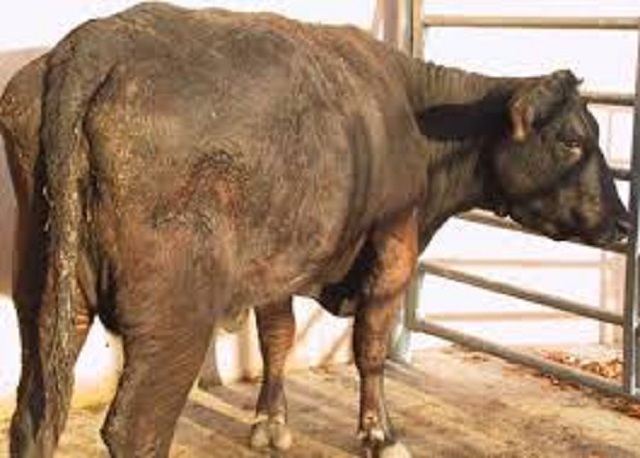
The Sunday News

Mhlupheki Dube
THIS week we look at one of the internal parasites that affect our livestock. This is called the liver fluke.
Liver fluke is caused by a parasite Fasciloa hepatica. Fluke eggs, which are passed in the feaces of a mammalian host, develop and hatch into motile ciliated organism. The process will take about nine days at the optimal temperature of around 25 degrees Celsius.
Mild temperatures and above average rainfall provide optimum conditions for fluke development. Specific types of snail are critical to the distribution of liver fluke. These snails are found in areas that tend to be permanently damp such as irrigation channels or slow moving streams or stagnant water bodies.
The snails can survive periods of drought but do not move very far from these permanently moist areas. Wet and damp areas on dry farms are high risk areas. An adult fluke can be up to three centimetres long and can survive in cattle anything between six months to two years.
Adult liver fluke are flat, oval organisms that live in the bile ducts of cattle, sheep, goats and other animals.
Liver fluke have a complicated life cycle. An adult fluke lays eggs that are passed out in cow manure. The eggs hatch tiny larvae which go out and attach to a specific snail. The snail is one of the hosts in the liver fluke cycle.
Several life stages occur in the snail and then a tiny organism emerges and forms a cyst on a blade of grass in your pastures.
The cysts are then ingested by an animal which is grazing in the pastures. These cysts which have been accidentally consumed by livestock during grazing then hatch into larvae and migrate around the body to the liver. The presence of the larvae in the liver in large numbers can damage the liver tissue. When the larvae reach the bile ducts of the liver they then grow into adult liver fluke. These then cause damage to the bile ducts of the liver resulting in loss of appetite, lower growth rates and reduced milk production in cows.
The loss of appetite in cattle due to liver fluke infection will translate into poor growth rates because of reduced feed conversion efficiency. Liver flukes have also been known to reduce fertility in cows as well as causing anaemia and diarrhea.
The cows become depressed and the resultant nutritional stress reduces fertility and compromises the immune system of your animals.
In essence fluke infection can reduce lifetime performance of your animals and it can also precipitate other infectious disease such as the Clostridial infection. At slaughter the liver of a heavily infected animal will be condemned. At times animals affected by liver flukes may experience an accumulation of fluid under the jaw which appears like a swelling.
This is known as the “bottle jaw”. Generally your stock will look not thriving. Young stock tend to be more susceptible to fluke, however adult cattle do still suffer from the disease.
Treatment of liver flukes is generally through dosing. However, it is important to understand the live cycle of the liver fluke so that you can apply appropriate anthelmintics (dosing chemicals) which are able to deal with a specific stage of the life cycle.
For example some dosing chemicals are not effective against immature fluke and so are not recommended in acute fluke outbreaks. There is a range of liver fluke drenches that are effective against liver fluke in cattle but they vary according to the age of the flukes. It is therefore important for farmers to understand the prevalence of liver flukes in their area. This information can be provided by the veterinary departments. There are areas which are known to be endemic to liver flukes and therefore farmers in such areas need to adhere to appropriate dosing regimes and remedies. This means if your area is prone to liver flukes, as a farmer you have to specifically look for anthelmintics that can treat liver flukes. I have noticed some dosing remedies that are written “plus” to indicate that in addition to treating other internal parasites, they also treat liver flukes. Uyabonga umntakaMaKhumalo
Feedback:[email protected]/cell 0772851275



